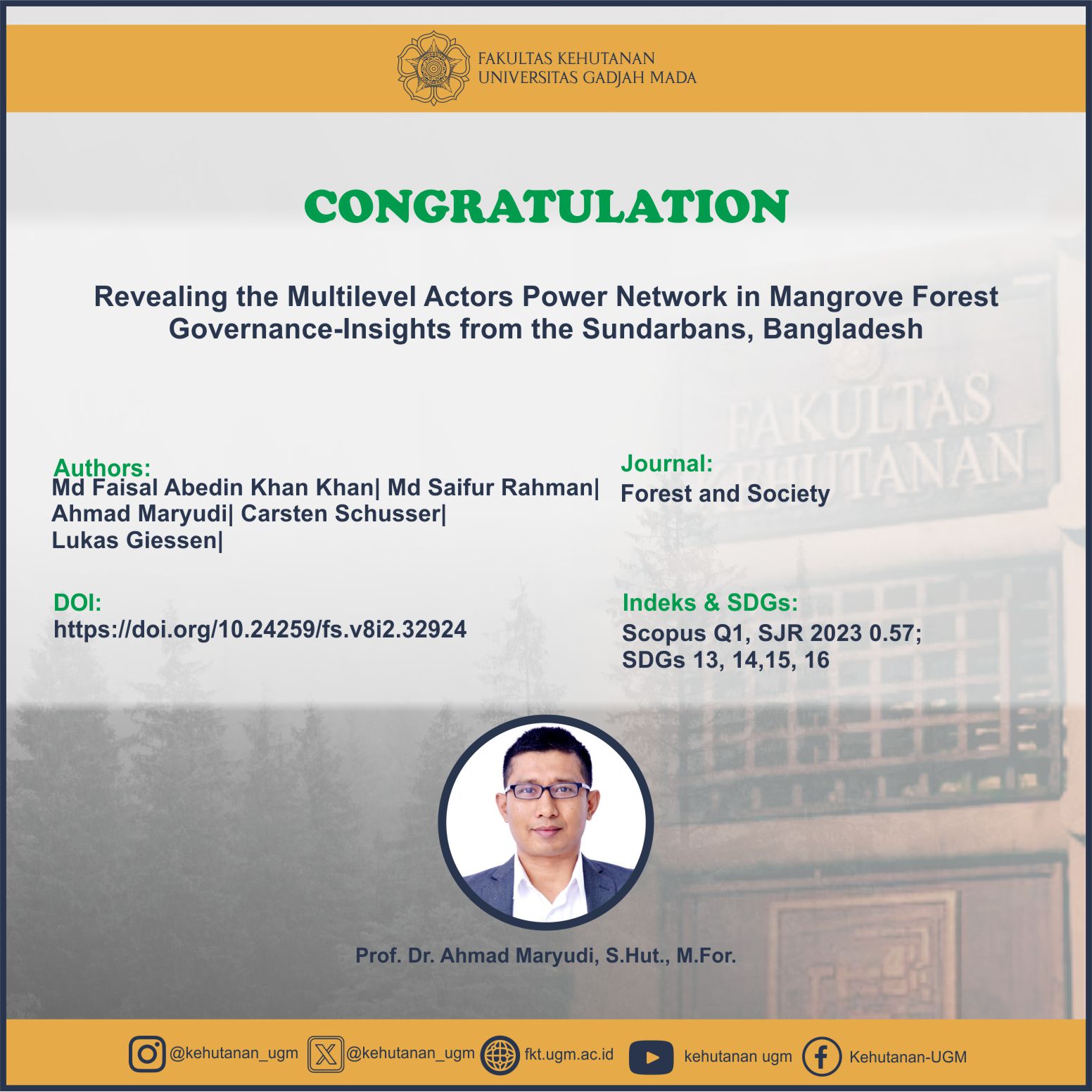
Abstract
Having diversified ecological and socio-economic function of the Sundarbans Mangrove Forests (SMF), its governance significantly relies on the power relations among multidisciplinary actors present at the multiple level of jurisdictions from national to local level. The analysis elicits the identification of actors and the extraction of their interrelationships based on different power resources, which frame power interaction of the multilevel mangrove governance for the SMF of Bangladesh. Actors were identified by snowball approach and then qualitative interviews to them were carried out. A web-based mapping tool was used for extracting social network analysis of multilevel power relations for the Sundarbans’ governance. The revealed power network indicated that the national level state actors (e.g., actors from government and administration category) were driving all sorts of power sources; coercion, dominant information and (dis-)incentives over the actors at local level emphasizing cross-cutting policy issues and multifunction of the mangroves. The local level non-state actors’ (mostly NGOs) proactive and participatory approaches delineated as bridging role in mangrove governance between national level state actors and local level user actors based on coercive, (dis-)incentives and dominant information power elements. The actors at the local level user category didn’t show any substantial effects on policy decisions. To analyse the effects of policy implementation and growing
competitiveness on the ground, in regard of subsidies amongst the different actor groups further research is needed.
SDGs:
SDG 13: Climate Action
SDG 14: Life Below Water
SDG 15: Life on Land
SDG 16: Peace, Justice, and Strong Institutions
Link Dokumen:
Download
